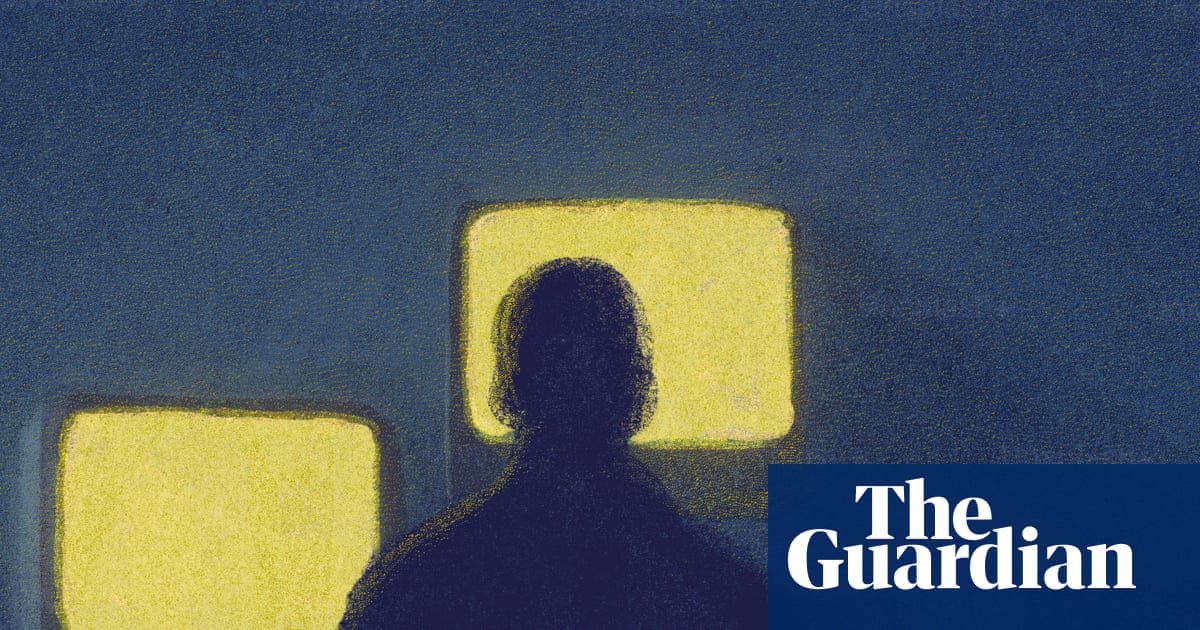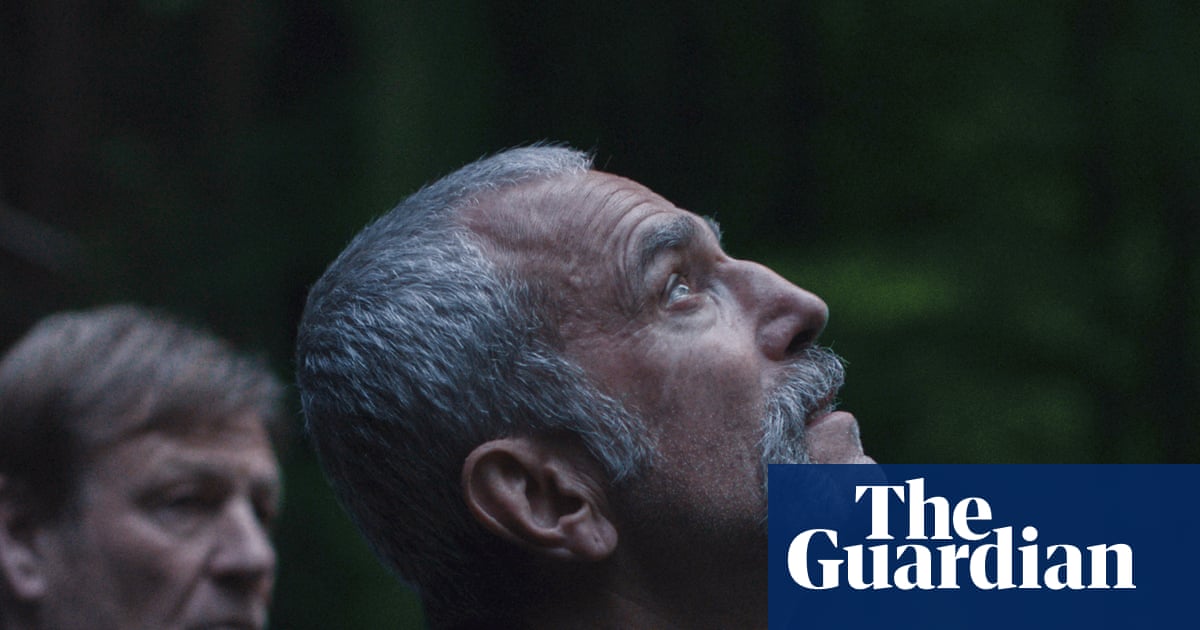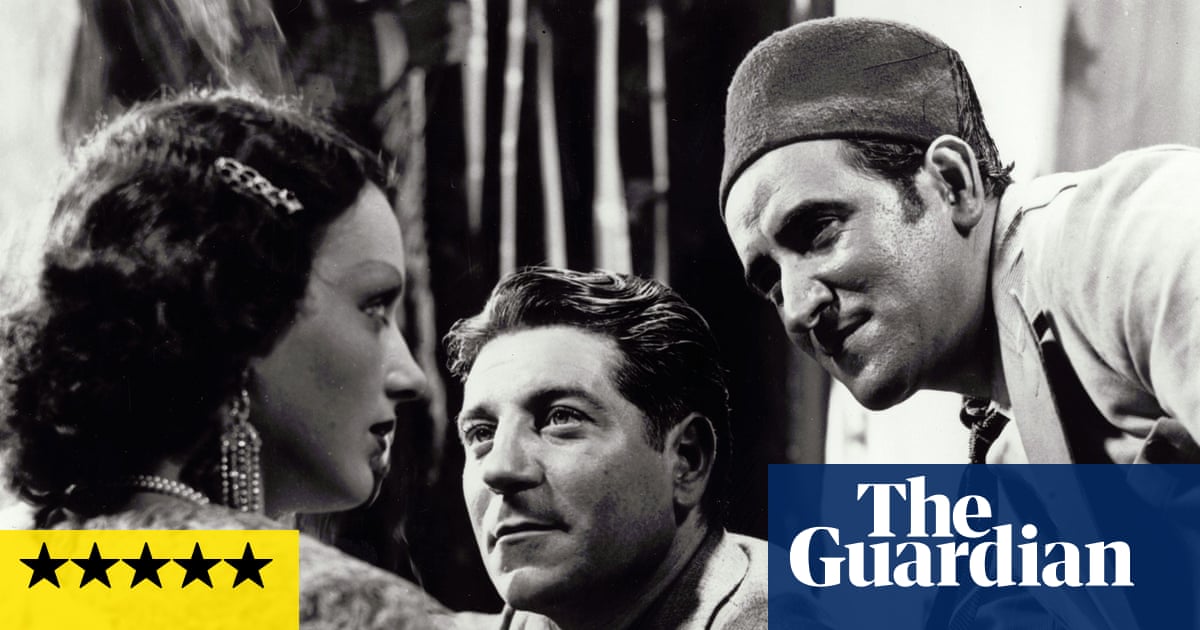For any documentary that hinges on access in order to be produced, the collaboration between director and subject takes on a fraught and delicate dynamic, defined by continuous negotiation between creative intentions in conflict as often as they overlap. The documentarian prizes honesty above all else, even and especially when it’s unflattering to the parties on camera, while those with the ability to shut down the whole operation by rescinding their permissions might wield it in order to promote an agreeable image of themselves. If the talent calls the shots, you get point-and-shoot exercises in hagiographic brand management, and if the director lacks that diplomatic touch, the film doesn’t get made.
Very shortly after the film-maker Matt Wolf began work on Pee-wee As Himself, a three-and-a-half-hour portrait of the artist Paul Reubens airing on Friday night on HBO, he started to wonder if he had met his match in the “dream subject” he had pursued for years. Reubens finally agreed to participate in the project because his desire to set his own record straight dovetailed with Wolf’s cardinal rules of “nuance, complexity and integrity”, but the two nonetheless jockeyed for authorial control over a multiyear process. As their interview sessions stretched on and on to a total of 40 hours, the comedian famed for decentering himself behind his stage-and-screen persona Pee-wee Herman proved a formidable sparring partner in turns playful and distractible, sly and evasive, “taunting and rebelling and procrastinating and blowing off steam”, as Wolf remembers him.
“I found him immediately to be incredibly intense and challenging, but also compelling,” Wolf tells the Guardian over Zoom from his home office, the original Pee-wee poster from the early days at the Groundlings (a parting gift from Reubens’s assistant) hanging on the wall behind him. “After our first talk, he said what you see at the beginning of the film: ‘I want to make this documentary myself, everyone’s advising me against it, and I don’t understand why.’ And I told him I wanted to get to know him, and see if he could find a way of working with me. It was thrilling and combative in equal measure.” Wolf came in with the rule of thumb that interview subjects tend to lose steam after five hours, so it’s best to call time around there; Reubens flatly rejected this, and insisted that Wolf would be the one to cry uncle first.
The finished product is intimately conversational, not only an excellent representation of the experience of speaking with Reubens, but a cooperative effort to reconcile two approaches and perspectives occasionally at odds. In their time together, Reubens often placed his hand on the wheel, asking for scripts and shot lists for sequences meant to be spontaneous. Wolf did commit to include him in the edit and agree to show him a cut, but “the idea that I, as a documentary film-maker, could come in and take his life as the raw material for my work was alienating and confusing for Paul”, Wolf says. “Which I understand; he lost control of his personal narrative, and he had real trauma left over from that. I was sensitive of that, and at the same time, fiercely protective about my editorial independence.”
While shooting, Wolf found his way forward by embracing this push and pull as part of the text, the first time he’d considered incorporating himself into his filmography. This posed a unique challenge when, with an interview scheduled for the following week in summer 2023, Reubens died of the lung cancer he’d kept a secret for the previous six years. “The day Paul died, that night, I started to read the 1,500-page transcript of our interview,” Wolf says. “I spent days doing nothing but reading, seeing all these new connections and significances.”
Wolf suddenly found himself the primary custodian of another man’s life story, his newfound lack of disputes attached to a moral obligation to do right by Reubens’s legacy. “I could not drop this ball,” Wolf says. “Every day when I woke up, I was aware that I had to rise to the occasion for this extraordinary responsibility I’d been given.” Reubens died at what seemed like a turning point for the film, just as he and Wolf had broken through a long impasse and reached a resolution to move forward, their final dialogue marked by “assurances I needed to continue on”, as Wolf puts it. “I’m hyper-vigilant about not speaking for Paul, or speculating about things he didn’t tell me. It’s unfair to do that for someone who can’t speak for themselves. There are limits to what we can know about other people.”
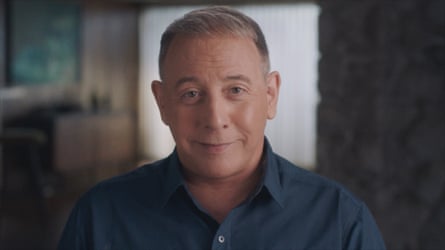
The initial version of Pee-wee As Himself duly rehashed the main talking points of Reubens’s life and career: the formative boyhood obsessions that would become kitsch classics to the first generation of Americans reared on irony, the creation of the excitable man-boy Pee-wee Herman, the character’s anarchic stage show that begat widely beloved star vehicles on screens big and small, the reputation-tarnishing arrest for public indecency in an adult movie theater and a trumped-up charge of possession of child sexual abuse images fueled by culture-war grievance. Wolf was thorough, but guarded; “that first-cut was very self-censoring,” he recalls. “Everyone told me to get real.”
Wolf’s revisions delved deeper by pulling back the curtain, using the interview as a device to illustrate the slippery, elusive nature of a deeply compartmentalized man. Reubens’s tendency to appear in public as Pee-wee was just one part of a complex pathology oriented around privacy, a veil of secrecy Reubens lifted in the knowledge that his days were numbered. Though widely suspected since he first came to prominence, Reubens confirms his homosexuality for the first time on camera, divulging that he actually went back into the closet after a public relationship with a handsome artist named Guy, who later died of Aids. The revelation that Guy originated what would become Pee-wee’s signature “mmm, [noun]-y!” reaction to food ranks as one of the most devastating details in a film that will emotionally pulverize devotees of Reubens.
Though Pee-wee was friend to all – especially icons of queer camp, the guest list on his Christmas special bringing together Cher, kd lang and Zsa Zsa Gabor – Reubens uncomfortably shrugged off any notions of gay sainthood. His return to the closet was in part practically motivated, driven by the shrewd awareness (later proven brutally correct) that America would not accept a homosexual entertaining their precious, impressionable children. But acceptance was always the secret word of the day in the Playhouse, a little lunatic utopia in which kids’ weirdest passions – old-timey pop-culture detritus, janky claymation, humor verging on dada a decade-plus before junior audiences met Spongebob – were nourished and celebrated.
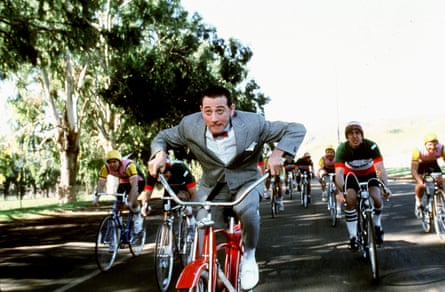
If this tragically unfinished film can be said to draw a conclusion, it’s that the heart of Reubens’s legacy will live there, in the eccentricity and generosity of spirit that made him a hero to so many young oddballs and misfits. Wolf shares the story of a Pee-wee superfan in hospice, who reached out with a plea to see the film before losing her own battle with cancer. (She died two days before our interview, and he’d prefer to keep their “beautiful correspondence” to himself.) At first, Wolf didn’t know too much about Reubens the man beyond a vague awareness of his experimental early days, but he looks back on Pee-wee’s Playhouse as a “significant touchstone” in his youth. “I wouldn’t have been able to put words to it at the time, but I think it was my first encounter with art that I had a visceral reaction to,” he says. “And looking back, I think its message of radical acceptance, nonconformity and creativity, that became part of my DNA, as it did for so many kids and adults.”
I know what he means. Though I’d missed the boat on the Playhouse’s initial broadcast run, I grew up as one of the Saturday morning faithful in reruns, enraptured by a show vibrating on a different frequency than everything else. For Wolf, a gay man, some of the resonance came from Reubens’s willingness to meet his audience at eye level with furtively mature humor speaking to queer sensibilities without explicit statement. But his appeal was also more expansive than that, an offbeat light in the darkness of the shrill, dull wasteland that was children’s programming. Before youngsters can put a name to camp, they know how to heed its call, every bit as spellbound by Pee-wee as Reubens was by Howdy Doody back in his day. That inspiration is the most meaningful gift he leaves behind. “The fact that we couldn’t articulate why we felt an affinity for something speaks to how profound its impact was,” Wolf says. “It eludes words, to understand why something changes you as a kid.”
-
Pee-wee As Himself premieres on HBO in the US on 23 May with a UK date to be announced

 3 months ago
46
3 months ago
46


